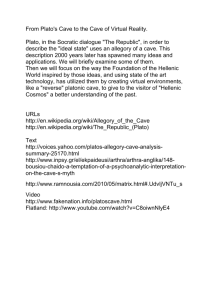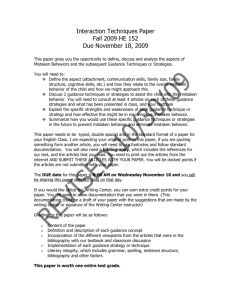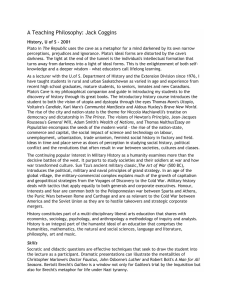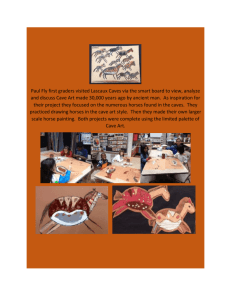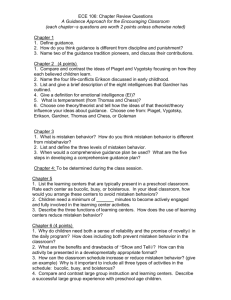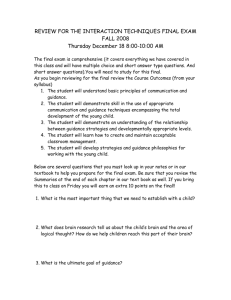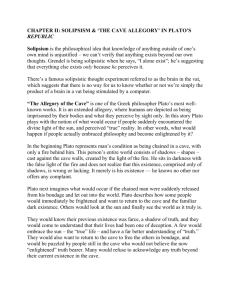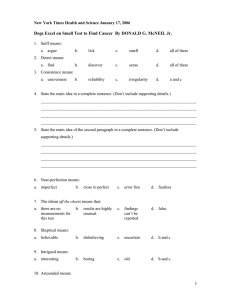Document 13542573
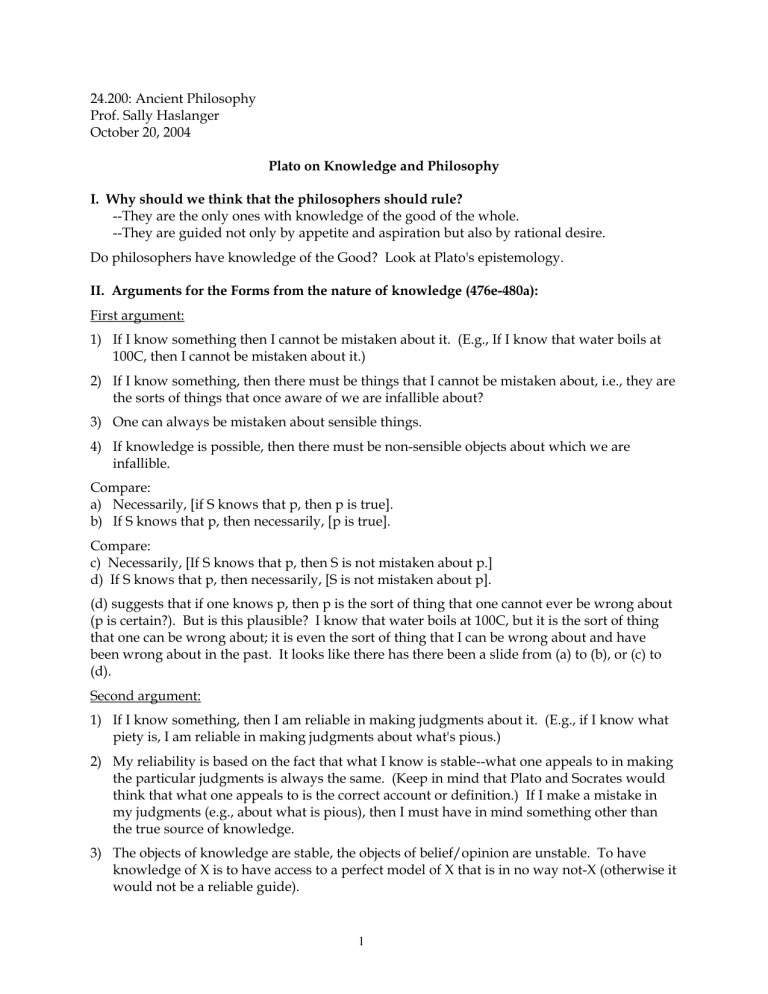
24.200: Ancient Philosophy
Prof. Sally Haslanger
October 20, 2004
Plato on Knowledge and Philosophy
I. Why should we think that the philosophers should rule?
--They are the only ones with knowledge of the good of the whole.
--They are guided not only by appetite and aspiration but also by rational desire.
Do philosophers have knowledge of the Good? Look at Plato's epistemology.
II. Arguments for the Forms from the nature of knowledge (476e-480a):
First argument:
1) If I know something then I cannot be mistaken about it. (E.g., If I know that water boils at
100C, then I cannot be mistaken about it.)
2) If I know something, then there must be things that I cannot be mistaken about, i.e., they are the sorts of things that once aware of we are infallible about?
3) One can always be mistaken about sensible things.
4) If knowledge is possible, then there must be non-sensible objects about which we are infallible.
Compare: a) Necessarily, [if S knows that p, then p is true]. b) If S knows that p, then necessarily, [p is true].
Compare: c) Necessarily, [If S knows that p, then S is not mistaken about p.] d) If S knows that p, then necessarily, [S is not mistaken about p].
(d) suggests that if one knows p, then p is the sort of thing that one cannot ever be wrong about
(p is certain?). But is this plausible? I know that water boils at 100C, but it is the sort of thing that one can be wrong about; it is even the sort of thing that I can be wrong about and have been wrong about in the past. It looks like there has there been a slide from (a) to (b), or (c) to
(d).
Second argument:
1) If I know something, then I am reliable in making judgments about it. (E.g., if I know what piety is, I am reliable in making judgments about what's pious.)
2) My reliability is based on the fact that what I know is stable--what one appeals to in making the particular judgments is always the same. (Keep in mind that Plato and Socrates would think that what one appeals to is the correct account or definition.) If I make a mistake in my judgments (e.g., about what is pious), then I must have in mind something other than the true source of knowledge.
3) The objects of knowledge are stable, the objects of belief/opinion are unstable. To have knowledge of X is to have access to a perfect model of X that is in no way not-X (otherwise it would not be a reliable guide).
1
4) Sensible things are unstable and are capable of being both X and not-X.
5) If knowledge is possible there must be non-sensible things that serve as stable models for our judgments.
III. On the Sun, Line, and Cave:
"The Cave" (Rep. 514a-518d), "The Line" (Rep. 509d-511c), "The Sun" (Rep. 507b-509c)
Capacity of Thought
Object of Thought
Analogue in Cave? Psych. Type?
Dialectical
Thought
(Understanding)
Forms Sun Wisdom-lovers
Scientific
Thought
(Reasoning)
Scientific &
Mathematical
Objects
Things in
Daylight
Opinion or
Belief Objects of
(Folk Wisdom?) Sense
Puppets???
Image-making,
Imagination
(Perception?)
Images &
Reflections
Shadows???
Honor-lovers
Money-lovers
(nec. desires)
Money-lovers
(lux. desires)
---Problems: Shadows in cave clearly should respond to objects of sense, but this mapping of the relations puts them with images and reflections? Way out: either leave out puppets the
"analogue in cave", and let objects of sense and images and reflections all correspond to shadows; Or: treat the bottom of the line as concerned with objects of sense, either at the level of folk wisdom or at the level of perception.
---The analogy of the sun suggests that the Forms are ordered in a hierarchy, the highest Form being the Form of the Good in light of which everything else is intelligible:
Good
1. Source of truth
2. Makes soul able to know
3. Makes objects of knowledge
Sun
1. Source of light
2. Makes eyes able to see
3. Makes object of sight visible knowable
4. Is responsible for the "being" of 4. Is responsible for birth and growth objects of knowledge
2
